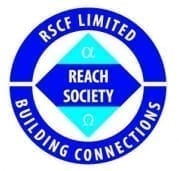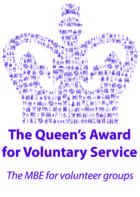
Trauma in the Modern Black Community
Angela Clarke MA MBACP
Types of Trauma
There are different types of trauma that are neither exclusive nor independent from each other. The mental health charity Mind.org described trauma as a “life sentence for a crime you did not commit.”
On average, 1 in 13 people will develop post-traumatic stress disorder (PTSD) during their lifetime. Many of these cases will go untreated.
Acute trauma is usually associated to a single event, such as assault, an accident or natural disaster. This can compromise a person’s physical and emotional wellbeing, and lead to short- term PTSD and cause other symptoms like extreme anxiety and avoidance of certain environments.
Repeated exposure to acutely traumatic events can develop into symptoms of chronic trauma, especially when left untreated. These manifestations tend to appear a long time after the original events, and show themselves in the form of anger, anxiety and trouble with interpersonal relationships.
Complex trauma however refers to the exposure to multiple traumatic events that happen repeatedly and in the long term. Examples include profound neglect, suffering or witnessing abuse, torture and slavery, and studies have shown that children exposed to these events early in life grew to exhibit behavioural issues such as aggression, distrust and dissociation. Complex trauma can lead to complex PTSD, where symptoms of PTSD are met with the added symptoms of shame, guilt and impaired memories. This type of trauma is generally attributed in the context of interpersonal relationships, and contribute to a person feeling trapped.
Intergenerational Trauma
Trauma comes in many forms, most of them largely misunderstood and even more largely misattributed. Common manifestations of past trauma are often misclassified as other behavioural issues, like anger management difficulties or conditions like ADHD.
These traits have been disproportionately attributed to the Black community throughout history, in situations ranging from implicit biases to explicit legislation that resulted in the placement of 1 in 4 children, all of them of West Indian origin, in special education schools, deemed “educationally subnormal”. This label was placed on them based solely on their race.
Vicarious traumais a process of change resulting from empathetic engagement with trauma survivors. Anyone who engages empathetically with survivors of traumatic incidents, torture, and material relating to their trauma, is potentially affected, including doctors and other health professionals.
The idea that trauma can be passed down from generation to generation is a newish one. The concept of intergenerational trauma was first recognised around 1966, as psychologists in Canada began to study children and grandchildren of people who had survived the Holocaust. Researchers theorised that the effects of trauma can be transferred from one generation to the next.
Though the Education Act of 1985 exposed this practice in parliament, thanks in the largest part to the publication of “How the West Indian Child is Made Educationally Sub-normal in the British School System: The Scandal of the Black Child in Schools in Britain” in 1971, the effects of this practice are still visible today. Not only because the practice continues albeit in less numbers, but because the prevalence of trauma lingers much longer than the action that caused it.
Research into trauma in the Black community yields a complex and layered scenario shaped by centuries of factors that are still widely misunderstood.
Epigenetics
A relatively new field of study, epigenetics, focuses on the changes in DNA structure that occur as a result of trauma. These changes are hereditary, meaning that PTSD will affect the DNA structure and subsequent behaviour of offspring for generations to come. Trauma in the Black community is as much inherited as it is due to contemporary social and political issues.
Racial Trauma
There are many barriers to addressing racial trauma. These range from a hesitance to identify certain events as traumatic to stigma surrounding responses to racial incidents.
Trauma gets easily perpetuated. Black Caribbean immigrants that arrived during the “Windrush Generation” had their identity and immigration status challenged four or even five decades after their legal arrival in the UK, based on the fact that their entry documents no longer exist. This happened four or five decades after a large number of them were denied housing, employment and education when they first arrived. Many of the children that were wrongfully sent to special schools for ESN pupils, in the 1960s and 70s, were sons and daughters of Windrush generation.
However, trauma in the Black Caribbean community predates the Windrush generation, being largely rooted in enslavement and colonialisation. Dr Joy DeGruy introduced the term Post Traumatic Slave Syndrome (PTSS) to define this phenomenon, referring to the multi- generational adaptive behaviour, that as much as it has led to widespread resilience and deep reflection, it has also resulted in destructive behaviour and resentment that endures across generations.
This resentment is not only perpetuated by spoken accounts and memory. Systematic racism in the form of segregation (in the USA) and xenophobia (across Western Europe and the USA) are still very much prevalent today and continue to stir these feelings, fuelling them with even more experiences that contribute to this collective trauma.
Sources of Support
There are few clinical resources to address mental health concerns specifically associated to racial trauma, and a big disparity in access to mental health services for people in the modern Black community (MBC). This is due to a mix of factors such as stigma, a lack of culturally sensitive options, and a general lack of information around the generational effects of community-wide trauma. There are however many organisations across the country offering counselling support and therapy for members of the MBC. I have listed some below.
Sentient Counselling: It was recently set up by the Church of God of Prophecy UK Trust in recognition of the significant increase in loss, bereavement and their effects on the mental health and wellbeing of individuals during the coronavirus pandemic. The need to provide holistic support for members of the faith communities and their family members across denominations was evident to church leaders. Support is provided by qualified Counsellors across the UK in an effort to meet people at their point of need. Here is a link to the website – www.cogop.org.uk
The British Association Counselling and Psychotherapy (BACP): It gives access to counselling for those suffering symptoms of trauma and other elements affecting emotional and physical wellbeing. Here is a link to the website – https://www.bacp.co.uk/
Rethink Mental Illness: It also offers bespoke services for members of the Black, Asian and minority ethnic (BAME) communities, taking special consideration to the barriers hindering access to care for members of these communities such as cultural and language barriers, and the inability of many white professionals to understand how discrimination and racism cause trauma. Here is a link to the website – https://www.rethink.org/
The Black African Asian Therapy Network (BAATN): It is are the UK’s largest independent organisation to specialise in trauma and the psychological factors. Its counsellors are informed by an understanding of the effects of intersectionality on people who identify as Black, African, South Asian and Caribbean. Here is a link to the website – https://www.baatn.org.uk/
Multicultural Counselling Centre: It aims to provide a service to support people with a wide range of mental health needs, who also experience social disadvantage as a result of discrimination and poverty; and to strengthen confidence and self-esteem. Here is a link to the website – http://www.multiculturalcounselling.org.uk/
African and Caribbean Mental Health Services, Manchester: It aims: “To take a lead in promoting valued experiences and opportunities for African and Caribbean people in mental distress so that they can participate in and contribute to community life.” Here is a link to the website – https://www.acmh-services.co.uk/
The African Caribbean Community Initiative (ACCI): It is a holistic and comprehensive support service for the African Caribbean community affected by poor mental health. It provides an extensive holistic counselling and therapeutic service and facilitates a dedicated and proactive Carers’ Support Group. Here is a link to the website: – https://www.acmh-services.co.uk/
Recommended Posts

Tribute: Emeritus Professor Sir Geoff Palmer (1940 – 2025)
18th June 2025

The 3rd Manchester Employability Day, 29 May 2025
13th June 2025

The 4th Luton Employability Day, 27 May 2025
13th June 2025


